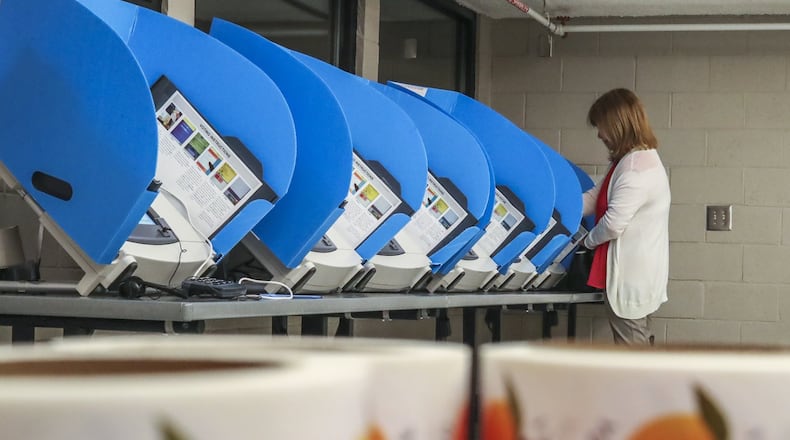Georgia joined a group of 25 other states Wednesday that shares voter information and cancels registrations of voters who moved out of state or died.
Secretary of State Brad Raffensperger said Georgia's participation in the Electronic Registration Information Center will keep voter lists accurate and prevent election fraud.
"Joining ERIC is a tremendous step forward for the integrity of Georgia's voter rolls, keeping our lists up-to-date and bringing our state to the forefront of election security," Raffensperger said.
Voting fraud is rare in Georgia and nationwide. Allegations of fraud are investigated by the Secretary of State’s Office, but few cases have resulted in criminal charges in recent years.
ERIC is a nonprofit organization that flags voters who may have registered in multiple states, moved or died. Georgia election officials would be required to contact flagged voters, and they could cancel the registrations of inactive voters who don't participate in two federal election cycles.
Raffensperger signed up with ERIC after the Georgia General Assembly passed a bill that called for the state to join a nongovernmental entity, share confidential voter information and update voter registration lists.
States that participate in ERIC contribute driver's license numbers and the last four digits of Social Security numbers, according to the Brennan Center for Justice at New York University School of Law. Information received by Georgia from ERIC will be exempt from the Georgia Open Records Act.
Besides canceling voter registrations, ERIC could help add new voters to the rolls, said David Becker, founder of ERIC and executive director for the Center for Election Innovation & Research.
ERIC requires states to reach out to citizens who are eligible to vote but not yet registered.
“Before the 2020 election, Georgia voters will see what voters in other ERIC states have seen — more eligible voters registered and fewer problems at the polls,” Becker said.
ERIC is different from another multi-state voter registration checking program called Crosscheck, which compared voter lists and identified potentially invalid and duplicative registrations. Crosscheck has faced criticism for erroneously flagging legitimate voters, according to the Brennan Center.
Georgia election officials in previous years contributed voter information to other states that participated in Crosscheck. But the state government never used Crosscheck data to remove Georgia voter registrations, a spokeswoman for the Secretary of State’s Office said last year.
Georgia lawmakers allowed Raffensperger to join ERIC as part of House Bill 316, which also required Georgia to replace its electronic voting machines with a system that prints out paper ballots starting next year.
About the Author
Keep Reading
The Latest
Featured





